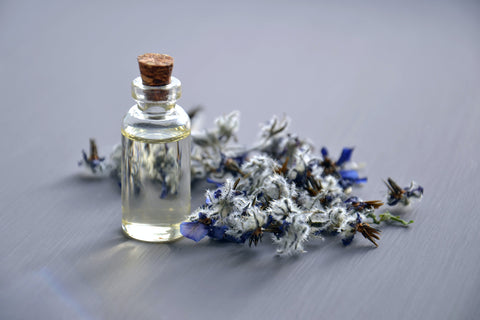The allure of perfumes and colognes has captivated humanity for centuries, weaving an aromatic tapestry that transcends time. The story of these fragrant elixirs is a journey through the annals of history, where art, science, and a quest for sensory delight converge. Join us as we delve into the intriguing origins of perfumes and colognes, unraveling the scented secrets that have been passed down through civilizations.
Ancient Beginnings: Mesopotamia and Egypt (circa 2000 BCE): The saga of perfumes and colognes commences in the cradle of civilization itself. Mesopotamians and Egyptians, the pioneers of perfumery, crafted aromatic concoctions using ingredients like myrrh, frankincense, and exotic flowers. These early perfumes weren't merely for personal adornment but were also integral to religious rituals and ceremonies, symbolizing the divine connection between earthly realms and the heavens.
The Perfumed Persians (circa 1000 BCE - 400 CE): Perfume production evolved into a refined art form in ancient Persia. The Persians refined distillation techniques, extracting essential oils from flowers and herbs, paving the way for more sophisticated fragrances. The significance of scents extended beyond personal use, with perfumed oils becoming symbols of luxury, wealth, and social status.
The Fragrant Footprints of Ancient Greece and Rome (circa 800 BCE - 476 CE): Ancient Greeks and Romans embraced perfumes as an integral aspect of their grooming rituals. Fragrance became synonymous with elegance, and individuals would anoint themselves with scented oils to signify not only personal hygiene but also social standing. Greek and Roman perfumers developed intricate blends, introducing floral and herbal notes that resonated through the ages.
The Alchemists' Contribution (8th - 14th Century): During the medieval era, Arabian alchemists refined distillation techniques, unlocking new possibilities in the world of perfumery. Their experiments with alcohol-based solutions marked the inception of what we now recognize as colognes. These early alchemists laid the groundwork for the art of blending scents, setting the stage for the Renaissance's olfactory renaissance.
Renaissance Revival (14th - 17th Century): The Renaissance witnessed a resurgence of interest in the arts and sciences, and perfumery experienced a renaissance of its own. Italy emerged as the epicenter of perfume creation, with skilled artisans producing exquisite fragrances for an elite clientele. The use of perfume became a symbol of refinement and sophistication, with distinctive scents worn by the aristocracy.

The creation of perfumes and colognes is a rich tapestry woven through the ages, blending the ancient mystique of Mesopotamia and Egypt with the refinement of Persian alchemy, the opulence of Greco-Roman society, and the innovation of medieval alchemists. Today, as we spritz on our favorite scents, we partake in a tradition that spans millennia, connecting us to the aromatic legacies of our forebears. The story of perfumes and colognes is a sensory odyssey, a testament to humanity's eternal quest for beauty and delight.

